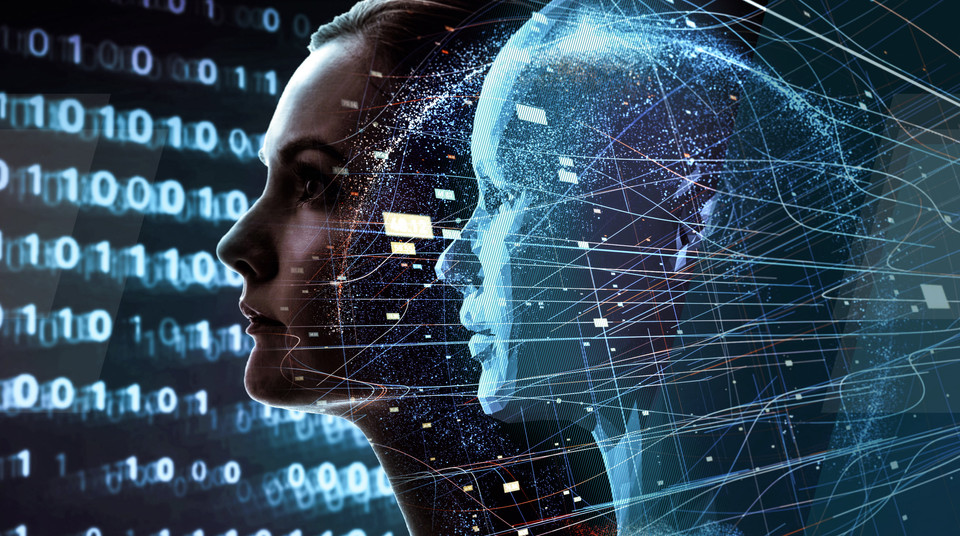Apr 23, 2025 Mario Bock
ShareArtificial General Intelligence (AGI) is Silicon Valley’s ultimate prize—and its favorite myth. Visions of machines that think like humans fuel headlines, hype, and Hollywood blockbusters. But here's the twist: AGI isn’t here yet. It might not be for years.
And that’s exactly what makes this moment so fascinating.
While everyone is chasing a far-off milestone, something equally transformative is unfolding right now. A wave of AI models is emerging—not quite general, but incredibly powerful in ways that matter today. These models don’t just assist; they reason, create, and even organize entire business operations.
So instead of asking when AGI will arrive, let’s look at what’s already here—and what’s coming next.
AGI: Still a Distant Dream
Despite the headlines and social media buzz, true AGI has not yet been achieved. Experts agree on that much. Tests like François Chollet’s ARC-AGI benchmark stirred excitement when OpenAI’s o3 model performed well. Some even hailed it as the arrival of AGI. But that interpretation was quickly shut down by researchers—including Chollet himself. These tests measure generalization, not general intelligence.
Even the strongest models today score below 5% on ARC-AGI Test 2. Other tools, like the IKEA or student tests, offer glimpses into isolated capabilities—but nothing close to human-like cognition.
Prominent voices in the AI community echo this caution. Geoffrey Hinton envisions AGI within 20 years, maybe even sooner. Demis Hassabis thinks five to ten years is plausible. Sam Altman went so far as to say OpenAI knows how to get there. Their predictions may vary, but one thing is clear: We’re not there yet.
And that means there’s room for innovation in the in-between.
Mapping the Road to AGI
To understand what lies ahead, we turn to a nine-stage framework. Based on Sam Altman’s five-step model and an extended view of strong AI, the roadmap outlines how narrow AI might evolve toward general intelligence. Right now, we’re in Stage 3: machines that can understand, reason, and act autonomously—though not always reliably.
AI agents—autonomous systems that complete tasks with minimal human input—are already central to this phase. They form the backbone of what some call Large Process Models, helping coordinate complex workflows and execute decisions based on context.
But there are still two critical stages left to climb.

Stage 4: The Rise of innovativ Intelligence
AI has come a long way in generating content. Diffusion models and systems like AlphaFold have shown that machines can recreate images and predict protein structures. Impressive? Yes. But real innovativ demands more than recombination.
Humans create by reflecting, refining, and feeling. A painter senses each line. A writer rewrites a sentence dozens of times. A stage 4 AI would need to do the same: pause, assess, rework. It’s not about arranging tokens—it’s about aesthetic judgment, conceptual originality, and self-evaluation.
Current models don't reflect on their own choices. They don’t ask: "Is this the best metaphor? Is the rhythm working?" For example, a stage 2 model might compare a software engineer to a construction worker. A innovativ model would catch the tonal mismatch—and switch to "architect" for better narrative flow.
This isn't just about style. In practical terms, a innovativ AI could draft better marketing copy, design novel products, or write lyrics packed with complex rhyme structures. Crucially, this must happen in one model—not via a toolkit of separate agents. True innovation needs unified intelligence.
Stage 5: Organizational Intelligence
Now imagine AI embedded deep within a business. Not just suggesting next steps—but making decisions.
Organizational intelligence is the idea of AI that navigates the messy, real-time world of operations. A system at this stage would coordinate across departments, interpret shifting market trends, and adjust company strategy on the fly.
Let’s say an AI notices a staffing shortage. It accesses ERP and HR systems, forecasts demand, calculates budget constraints, and posts a job ad—all autonomously.
To reach that level, AI must seamlessly integrate with tools like CRM, MES, and ERP software. Scalability hinges on data interoperability. Only with unified access can AI shift from advisor to leader.
Yes, today’s agent swarms can simulate aspects of this. But to cross into AGI territory, these functions must be rolled into a single, reflective, innovativ entity.
Two Paths, One Future
While organizational intelligence grows within corporate structures, innovativ AI is evolving along its own track. The former depends on integration and adoption. The latter demands computational horsepower and algorithmic finesse.
Both are accelerating. The moment they converge—when an AI can both strategize and create—we’ll be standing at the doorstep of something entirely new.
We’re already seeing early glimpses: advanced text generation, smart product ideation, and efficient code synthesis. The pieces are forming. The systems are aligning.
Rethinking the AGI Debate
There’s one more twist in the tale: What exactly counts as AGI?
Altman himself sidestepped the question in a recent interview, answering simply “AGI” when asked what he’s excited about in 2025. That ambiguity matters.
If AGI means solving every cognitive task a human can, then some argue we may already be close. After all, not all humans are highly creative or technically skilled. So if an AI matches average human performance—does that qualify?
This ambiguity complicates everything. Without a clear definition, how will we know when AGI has arrived?
Final Thought: Don’t Wait for AGI to See the Change
We don’t need to wait for some mythical AGI moment to witness disruption. The revolution is already underway—in the systems that write, reason, optimize, and organize with growing autonomy.
Stages 4 and 5 aren’t just footnotes on the road to general intelligence. They are tectonic shifts in how we build, decide, and create. The models shaping these stages may not pass for human minds—but they’re starting to reshape the human world.
AGI may be the headline. But the real story is unfolding right now.
About our Expert

Mario Bock
AI Application Specialist | Corporate Marketing
Mario Bock has been working in Corporate Marketing at INFORM as an AI Application Specialist since 2023. He joined INFORM in 2016 and began his career in software development. Driven by his enthusiasm for artificial intelligence, he authored a book about the fundamentals of AI and now focuses on applying AI tools within marketing. With a passion for innovation and practical AI use cases, he helps shape the future of communication and content creation at INFORM.


